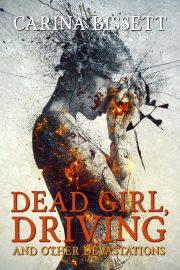Guest Blog Post: How Deliberate Practice Can Make You an Excellent Writer
 Posted by Victoria Strauss for Writer Beware
Posted by Victoria Strauss for Writer Beware
How do you get to Carnegie Hall? Practice, practice, practice.
This old saw applies to writers as much as to musicians. In today’s guest blog post, author and writing teacher Barbara Baig explores the importance of “deliberate practice”–a technique that involves not just identifying and challenging your writing strengths and weaknesses, but active, critical reflection on the writing process itself–and suggests ways in which writers can use deliberate practice as a tool for honing their craft.
For the record, I don’t agree with Barbara about the irrelevance of talent. I believe that some people start out with more innate verbal, visual, and imaginational ability than others, and can benefit more from practice–just as some people start out with more athletic or mathematical or musical ability, and benefit more from training. However, even the greatest genius risks failure if he or she doesn’t do the work. Just about any writer can benefit from the techniques suggested below.
————————–
by Barbara Baig
In a recent blog post (Getting Published is Not a Crap Shoot), Victoria Strauss explained the truth about why most people shopping manuscripts don’t get published: it’s because their writing isn’t very good. Agents and editors are looking, above all, for excellent writers. But how do aspiring writers set about achieving excellence?
The answer to that question comes from the field of expertise studies. Research scientists in that field have for decades been interested in the question of what makes certain people really good at what they do. To find the answer, they have studied high achievers in many different fields: music and firefighting, chess and golf—even writing. Most of us are sure we already know why some people are great in their field—it’s talent, that mysterious quality given at birth to the fortunate few. But we are wrong.
In study after study, researchers have found no evidence for innate talent as the prerequisite for success. Nor have they found that hard work alone makes certain people great. While successful people—those who achieve excellence in a domain—do work very hard, it’s how they work that distinguishes them from others. It turns out that just putting in hours and hours at your chosen work is not enough; the only way to get better is to make sure you’re devoting those hours to what the researchers call “deliberate practice.”
Most of us think that we know what practice is. Maybe we once learned to play tennis, and we remember practicing our forehand. Or maybe we are learning to play the piano, and we practice scales. It’s unlikely, though, that what we are doing is really “deliberate practice”—and it’s almost a certainty that we have never applied the concept of deliberate practice to improving our ability to write.
When most people practice, they repeat things they already know how to do. But when those who become experts in their field engage in practice, they spend most of their time doing things they don’t already know how to do. They are constantly challenging themselves to improve, to do things better, to gain additional skills. Deliberate practice isn’t just hacking around; it’s hard work, which demands reaching for objectives that are always just out of reach. The only way to attain those objectives is through immense amounts of repetition. Ted Williams, the great Red Sox hitter, used to take swing after practice swing until his hands bled. Larry Bird, the legendary basketball player, got up at 6 a.m. every morning in high school, went to the gym, and shot 500 free throws.
Athletes and musicians all devote themselves to practice; they know that’s the only way they can become good enough to compete at a professional level. Practice is how they learn their skills; practice is how they keep those skills sharp. But when do most writers ever practice?
For most people, the answer is: Never.
That’s because we learn how to write in school; and in school, writing is always done under what I call “performance” conditions: it counts—it will be read, assessed, graded. Even in most creative writing workshops and writers’ groups, the focus is on performance writing—not, in this case, to get a grade, but to write something good enough to get published. The problem with this approach is that it’s impossible to learn your skills and to improve them if you never give yourself a chance to practice. Most aspiring writers are doing themselves a great disservice by focusing on trying to write publishable pieces. They simply don’t have the skills they need to produce professional-quality work. Instead of trying to get published, they need to devote themselves, at least for a while, to practice.
What, though, does a writer practice?
At first, that seems like a tough question. There are so many different kinds of writing, so many apparently different standards of excellence. But if we take a practical look at that question, it’s not so difficult to answer. Writers, I tell my students, need to have two main sets of skills: I call them “content skills” and “craft skills.” The content skills are the ones we use to come up with ideas and material for pieces of writing; they include creativity, imagination, and curiosity. Writers also need the ability to establish a natural relationship with readers, so we can transfer our content into their minds. We need craft skills, as well, both an understanding of the “large craft” of how our chosen genre works (a poem does not work the same way as a novel or an op-ed piece) and skill in the “small craft” of choosing words and putting them together into clear, eloquent, and musical sentences.
That’s a lot of skills, isn’t it?
That’s because writing is a complex activity, just as complex as hitting a fastball coming over the plate at a hundred miles an hour or performing a Beethoven sonata. One of the keys to deliberate practice is to break a complex skill down into component parts and practice each part separately. Athletes and musicians do this all the time; writers can learn this way, too.
To begin, write down all the writing skills you presently have. Are you good at coming up with ideas? Do you have a well-trained ability to do research? Does your imagination give you vivid, detailed pictures? Are you good at finding wonderful words?
Next, write down all the skills you need to learn or to work on. If you are just getting started with writing, you may find this difficult. If people have made comments on your writing, you can use those comments to make your list. If, for instance, you have been told that your characters are not believable or your descriptions fuzzy, then the skills of creating characters and writing description go on your list. Or try this: read over a piece of writing by your favorite author, writing you consider excellent. Now write down all the things the writer does that make this piece so good. How many of these things can you do now? How many of them do you need to learn how to do?
Your answers to these questions will tell you what you need to practice. Now you need to devise practices for yourself, and start doing them on a regular basis. If, for instance, you realize that you’re not very good at coming up with material, try this: make a list of all the things you want to write about and add to that list every day. Then, every day, pick one item from the list and write nonstop about it for ten minutes, simply collecting onto the page, at random, any material that comes to mind about your subject. In this way you will strengthen your creative faculty, which comes up with ideas and material.
Or if you need to get better at telling a story, you could find a book of folk tales or urban legends, and read one and retell it, on the page, in your own way. Do the same thing with another story, and then another. Or if you realize that you need to learn how to write more complex sentences, then get a good grammar book, learn something about sentence structure, and practice writing sentences with more than one clause.
To get the most benefit from practice, keep these two principles in mind: repetition and reflection. Repetition—lots of it—is required to make skills automatic, so that when you sit down to write your novel, they are ready to work for you. Reflection—what did I learn today? what do I need to learn next?—keeps you on track in your pursuit of excellence.
If all this sounds like a lot of work—well, it is, just as becoming a professional athlete or musician is a lot of work. But if you love to write—love it as much as Ted Williams loved to hit or Larry Bird loves to play basketball—then practice is a kind of dedicated play, a source of pleasure and fulfillment. And if you are willing to shift your focus from getting published to becoming an excellent writer, then there’s a very good chance that, eventually, your skills will take you to the “big leagues” of the writing world.
Recommended Reading:
- Geoff Colvin, Talent is Overrated: What Really Separates World-Class Performers From Everyone Else
- Daniel Coyle, The Talent Code
- Malcolm Gladwell, Outliers
- David Shenk, The Genius Myth
—————-
Barbara Baig has taught writing for over twenty-five years and is the author of How To Be a Writer: Building Your Creative Skills Through Practice and Play (Writer’s Digest Books). She offers free practice-based lessons for beginning and struggling writers at www.wherewriterslearn.com.


